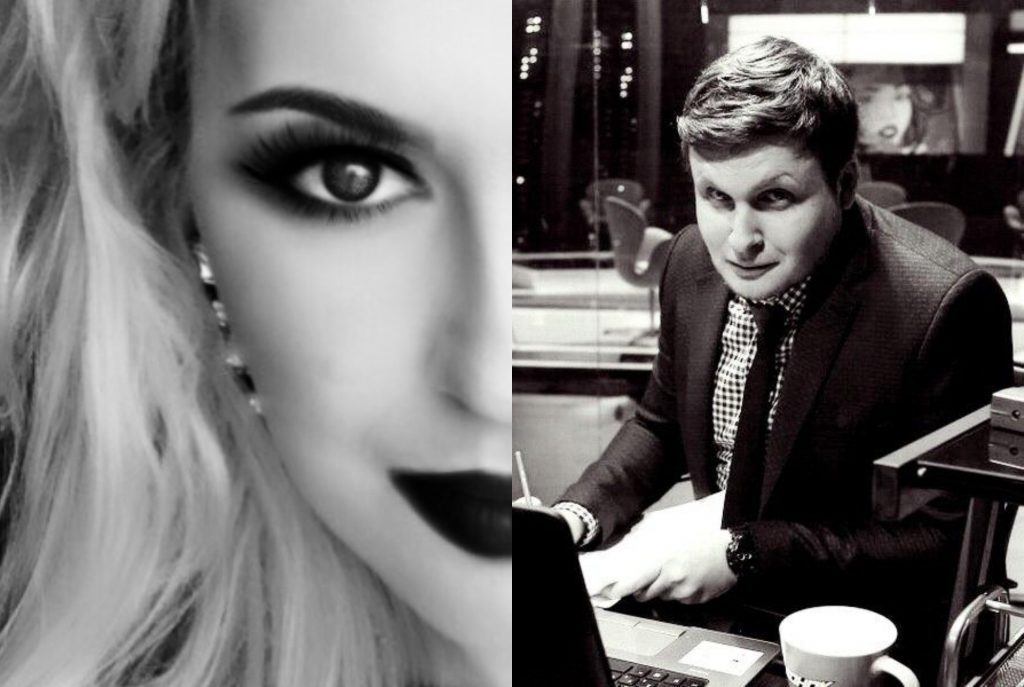INTERVIEW. Prankster Lexus: The main Russian prankster, real Russian hero, and villain. Alexei STOLYAROV aka prankster Lexus gave an exclusive interview to the journalist Sofia TERESHCHENKO, about the political situation in the world, hot pranks, informational war, Ukrainian Donbas, and 1917.
Lexus has already managed to play such politicians as Jean-Claude Juncker, Recep Erdogan, John McCain, Jens Stoltenberg, Nicky Haley, said “fuck you” on live tv station to the Ukrainian journalist Savik Schuster and called Petro Poroshenko like several times, last time both of them told each other to…kiss ass…
The list of the heroes of the political prank can go on for a long time: Igor Kolomoisky, Dmitry Yarosh, Vitali Klitschko, Oleg Lyashko, Elton John, Rick Perry, Kurt Volker, Tom Rogan..
S: What is the historical period of time now the whole is living in now? Are we at the edge of war or peace?
A: We are at the stage of the Cold War. History is cyclical and now we are experiencing the same thing that happened in the 80s and in 1917. Several wars, the absence of an active domestic policy in the country, stagnant elites, a request for change, sanctions from the outside, generation change, new values being grafted on. The main thing is that, at this stage, you can still change everything, so that 1917 would not happen again, and led radicals into the power, and in the late 80s, that gave life to liberal clans and destroyed once again the country. But there will be no nuclear war. At least not in Russia.
S: Do you consider the informational and cyberwars as an inalienable and irreversible future of diplomacy and international relations?
A: Any war cannot be part of diplomacy. And in international relations, everything happens at the level of sanctions and pressure at the diplomatic level. Therefore, informational or hybrid wars are rather tools of the military departments, than of diplomatic ones. Informational wars, of course, will gradually supplant the conventional. It is much effective nowadays.
S: What form of the political broadcast is missing the most on Russian television?
A: At the moment, there is not enough broadcast affecting the internal problems of Russia, both in the format of talk shows and documentaries. The rest is more than enough with excess.
S: In your opinion, all this hysteria with “excessive tolerance” and political correctness, has it actually brought freedom of speech and journalism to a stagnation? After all, there are journalists who are being arrested for realistic reporting, about migrant crisis, for example. How do you feel about all of this simulated “politeness” and modern political correctness? Can a nonconformity be so harmful in the 21st century?
A: I feel the same as of any hypocrisy. Censorship exists everywhere nowadays. I have not seen a single country in the world where citizens would consider their media to be completely independent. It’s just that the restrictions are different everywhere. Somewhere on national, social grounds. Somewhere on the political. But in any case, the most important and acute problems are never covered anywhere.
S: Ukrainian Donbas. Another one generation of “children of war” is growing on the planet. And it’s scary. What, in your opinion, we, as a young generation, are obliged to do for them, in order to distract their attention as much as possible from the amount of stress and depression in which they live hiding in the basements from the bombs; what does it need to be done, how to protect them from all of this, while the fate of their homeland is in such trouble?
A: First of all, it is necessary not to consider them as second-class people, to give them the opportunity to quietly get settled in the Russian universities, and move freely. To develop the activities of charitable foundations on the territory of LDNR (*occupied Eastern Ukraine – from the editor). Of course, it is necessary to open a department of Rossotrudnichestvo, which would be responsible for cultural programs, the arrival of artists, athletes in the Republic (*occupied Eastern Ukraine – from the editor) and strengthen cultural ties. For example, exchange programs.
S: Why do you think Russian philanthropy and patronage has lost its relevance and significance, and is no longer prerogative for oligarchs, as it used to be one hundred years ago?
A: Because oligarchs of spirit have become much fewer and they often do not see their future with Russia. They perceive it separately from their country and therefore do not want to help strangers. Now there are a lot of them. The value system has been killed. Now it’s the same as it is in a consumer society. However, I know some positive examples, but there are very few of them.
S: What would you like to “bring back” as a tradition or cultural value from the Russian Empire, if you could?
A: In general, I would prefer it not to die in 1917. We had a chance for reform without blood, but unfortunately its rulers led to the inevitable disaster and not without the participation of traitors. And it took many years to revive it. So now it’s worth thinking about what I would like to change in Russia now. There are ideas, but the main thing it shouldn’t lead to disaster.
S: You pranked Maxine Waters. Told her that Russia is attacking Limpopo. What emotions did you feel at that moment?
A: Only positive. This is not the funniest part that happened. Just probably more memorable, so I calmly reacted to her behavior.
S: Do you think Nikki Haley was really looking for Binomo Island?
A: I’m sure that after the conversation, she began, at least, looking for it. Turning to assistants’ for help, she realized that she herself had fallen a victim to the Russians, whom she promised to tame in that conversation.
S: What foreign language do you find sexy?
A: A foreign, in general, I think none. Only Russian. It’s more familiar and practical. But each language is in its own way good and interesting. Moreover, there is a theory that a person changes psychologically depending on the language he/she speaks.
S: Who is your favorite hero from the novel War and Peace? And why.
A: Pierre Bezukhov. He always looked for something and tried something in his life. And in the end, he found it.
S: Why do you think there are so few young (under 39 years old) people in politics? What are experienced leaders so afraid of? Our youth, our great potential, or our vivid hearts?
A: Young people have ceased to believe that they can change something. Partly, the elders are also to blame for not giving them a normal social lift. In other cases, young people don’t want to be engaged in such boring and outdated politics. Plus, many have become afraid to take responsibility and strive for stability.
S: Jean-Claude Juncker acts strange, Boris Johnson resigned, and all of this happened after your pranks. Is it because of you or is it a coincidence?
A: Junker, as far as I remember, always drank, but if it’s because of a call, then, probably, it’s not from grief. As for Johnson, I admit that such calls could affect his unstable state. Therefore, he was unpredictable. In general, Ukraine fired some ambassadors after our calls, but we don’t always follow the fate of our heroes afterwords.
S: Have you already met Mostik the cat?
A: Not yet, but I know some of his “colleagues” (*cats – from the Editor) in the Crimea and Krasnodar region, we are good friends. But I hope to see him soon anyway.
S: A wish from prankster Lexus: A terrible tragedy just recently happened in Greece, many people have lost their lives due to a forest fire, your kind words and wishes for the Greeks and Russians of Greece would be very helpful. What would you like to wish for Greece?
A: My words, of course, will not return anyone, but I would like people to appreciate what they have now because life can always end unexpectedly. The main thing is to love the close ones and try not to lose heart in the most difficult and tragic situations. But Greece has strong people, so I’m sure they will cope with all the difficulties.
Interesting facts about prankster Lexus:
Russian prankster works in the genre of “prank journalism”, TV presenter. Born in 1987 in Yekaterinburg. Economist and lawyer.
In 2017, Alexey and his friends created graffiti with a portrait of the Russian ambassador Karlov who was tragically shot in Ankara; the portrait is in Antalya in the direction of Kemer, on the destroyed shopping center. The first graffiti of Alexey’s team was about Dr. Lisa Glinka, they painted her on the wall of Yekaterinburg hospice.
Also in 2017, together with his colleague prankster Vovan, they published a book “For Whom the Phone Rings? ”.
(y.2018)

